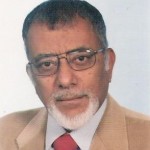A Brief Colonial History Of Ceylon(SriLanka)
Sri Lanka: One Island Two Nations
A Brief Colonial History Of Ceylon(SriLanka)
Sri Lanka: One Island Two Nations
(Full Story)
Search This Blog
Back to 500BC.
==========================
Thiranjala Weerasinghe sj.- One Island Two Nations
?????????????????????????????????????????????????Saturday, November 28, 2015
‘Lest We Forget’: A Response
By Charles Sarvan –November 27, 2015

Dr Sanjiva Wijesinha’s article appeared in Sri Lanka’s Sunday Times,
22nd November 2015. Those who haven’t read it should be able to access
it or infer content from what follows. The main thrust of his reproach
is that while there was massive coverage of the terrorist attack on
Paris, Sri Lanka was left alone during the years when the Tigers were
active: “we grieved alone”; “we grieved and mourned and suffered alone”.
It has been observed that success in a legal case depends on one’s
financial resources or the lack of it, the ironic question being: “How
much justice can you afford?” O. J. Simpson when charged with murder
employed some of the best (highest paid) lawyers in the US, forming what
was described in the press as a “dream team”. On similar lines, mutatis mutandis,
some countries can garner publicity while others don’t have the
necessary power and influence. For example, the attention paid to the
atrocities committed by the Japanese during the Second World War pale
when compared with the extensive and continuous coverage given to German
atrocities. The crimes of the Japanese were against Asians (until
recently, a poor and powerless people) while that by Germany was against
the Jews, now ranked, because of unqualified US (and Western) support,
as one of the most influential of people.
To cite another example, as I have written elsewhere, the African slave
trade is the worst blot on human history, taking into consideration its
(a) nature, (b) numbers (millions) and (c) duration over centuries.
Punishment was appallingly cruel. I cite one case: Thomas Thistlewood
came to Jamaica (1750) and kept a diary in which he meticulously,
methodically and dispassionately noted his diurnal doings. These include
flogging slaves and rubbing pepper, salt and lime into the wounds;
“taking” slave women when and where he pleased; burning to death over a
slow fire; rubbing in of molasses, followed by exposure to flies during
the day and to mosquitoes at night. One of Thistlewood’s punishments was
the “Derby’s dose”. The whipped slave had “salt pickle, lime juice
& bird pepper” rubbed into the open wounds, and then another slave
was made to defecate in his mouth. He was immediately put in a gag
whilst his mouth was full, and made to wear the gag for “4 to 5 hours”.
Yet the slave trade gets little attention when compared with what the
Shoah receives: the Afro-Americans are not as rich and influential, as
organised and powerful, as the Jewish lobby. Government, media and
public sympathy depends on non-humane factors. To my knowledge, there is
no national day in the US to mark and mourn the slave trade. The end of
the slave trade marked the beginning of ‘Jim Crow’: see my article inColombo Telegraph, 14 November 2015, titled ‘Film, fiction and falsity’.
This is not to decry remembering the Holocaust, most certainly not, but
to draw attention to the comparatively little publicity; the public
reminding that slavery receives when compared with what the Shoah is
accorded. Germany has repeatedly confessed its guilt, expressed
contrition and paid compensation. Chancellor Willy Brandt, in his Warschauer Kniefall,
went down on his knees in penance at the Warsaw memorial (7 December
1970). The contrast with Japan vis-à-vis Asians is extreme.

